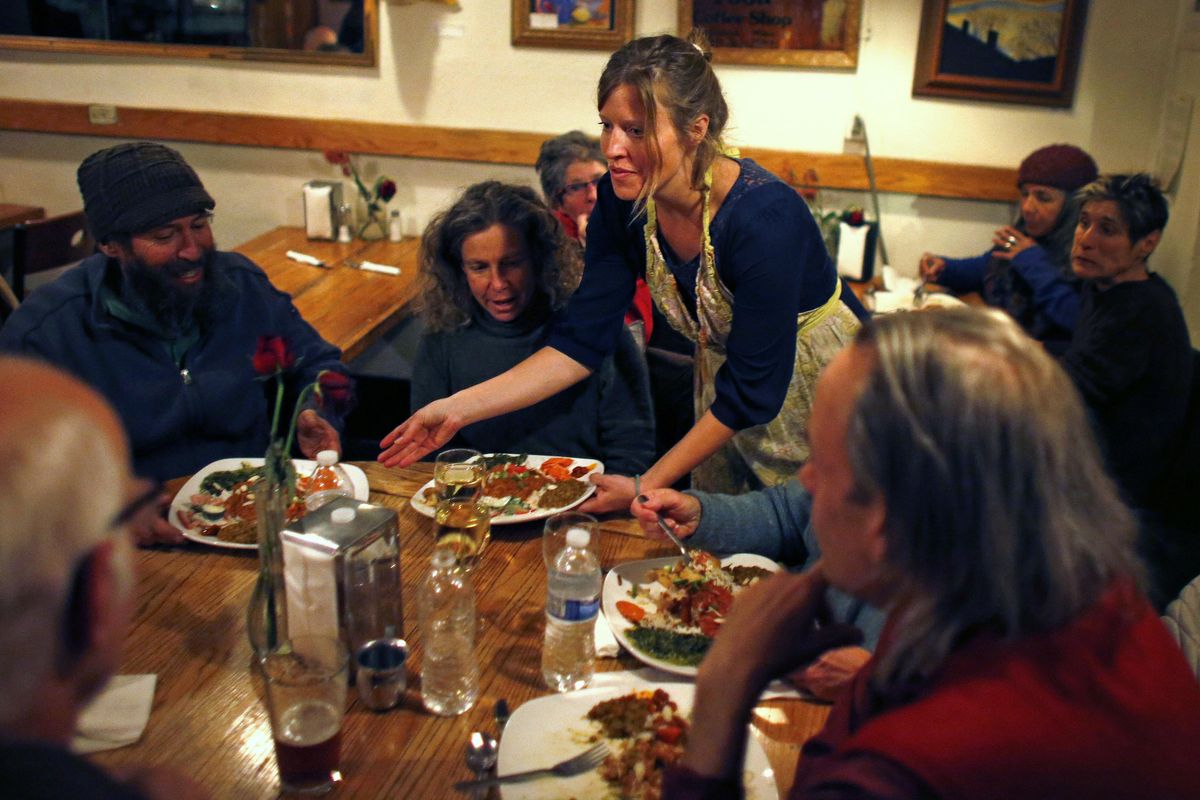Science backs it up: Political divisions are impacting Thanksgiving

It’s not just your family: Political disagreements are shortening Thanksgiving dinners across the U.S.
Politically divided families cut their Thanksgiving dinner short by 20 to 30 minutes in 2016, according to a draft paper by Ryne Rohla, a doctoral candidate in economics at Washington State University, and M. Keith Chen, a behavioral economist at UCLA.
The pair used smartphone GPS data and precinct-level election results to analyze where Americans spent Thanksgiving last year. It builds on Rohla’s work to create a precinct-level map of the 2016 election earlier this year.
They found the impacts of politics on Thanksgiving were asymmetrical.
“While Democratic voters traveled less in 2016, political differences shortened Thanksgiving dinners more among Republican voters, especially where political advertising was heaviest,” they wrote.
Using data from Safegraph, a company that buys data from smartphone apps tracking locations, they were able to determine a smartphone owner’s “home.”
To determine whether a person was a likely Democrat or Republican, Rohla and Chen looked at precinct voting patterns. If a precinct voted 80 percent for Donald Trump and 20 percent for Hillary Clinton, they assigned voters in the precinct an 80 percent chance of being a Republican.
Then, they used the GPS data to pinpoint where people spent Thanksgiving last year. If someone left home between 1 and 5 p.m. Thanksgiving Day, they pinpointed the place they spent the most time away from home as the location of their Thanksgiving dinner.
By computing the likely voting patterns of people’s destinations on Thanksgiving, the pair were able to calculate the likelihood of a political mismatch between a Thanksgiving traveler and the home they went to for dinner. People were only counted if they traveled from their home on Thanksgiving and returned the same day, so family flying in from out of town wouldn’t have counted.
They also looked at Thanksgiving in 2015 to make sure the changes they observed were fueled by the particularly contentious election season, and not a regular trend for families that mix Democrats and Republicans.
Even controlling for travel distance and census demographics, they found significant reductions in dinner time in politically mixed households in 2016.
“Our results suggest partisan differences cost American families 62 million person-hours of Thanksgiving time, 56.8 percent from individuals living in Democratic precincts and 43.2 percent from Republican precincts,” the paper says. “We estimate 27 million person-hours of cross-partisan discourse were eliminated, which may provide a feedback channel by which partisan antipathy reduces opportunities for close cross-party conversations.”
The sample represented about 77 percent of Americans who owned smartphones. To check whether it was a good sample, they looked at the predicted votes of each person they analyzed against the actual vote cast in their state. The results were accurate within 1 percent of real vote counts in 33 states, and 5 percent in all states.
The paper has not yet been published and is currently undergoing review.